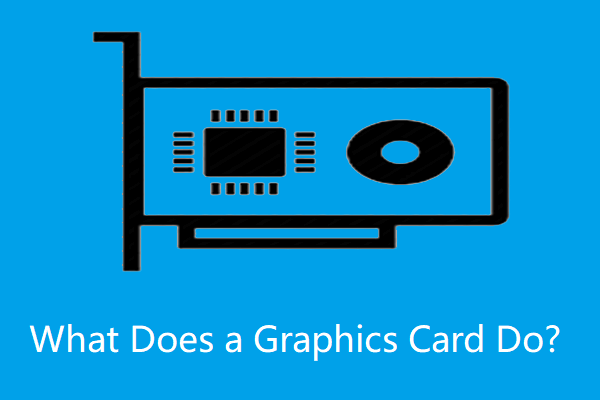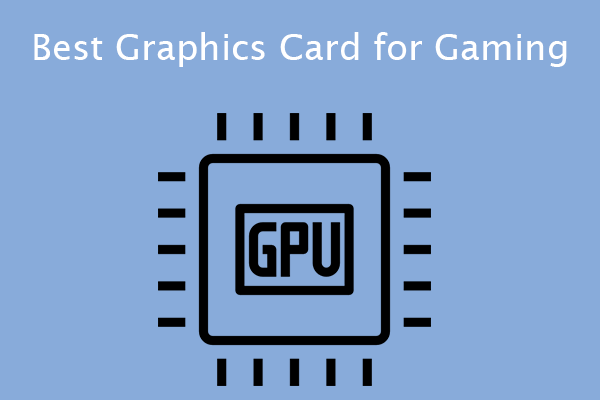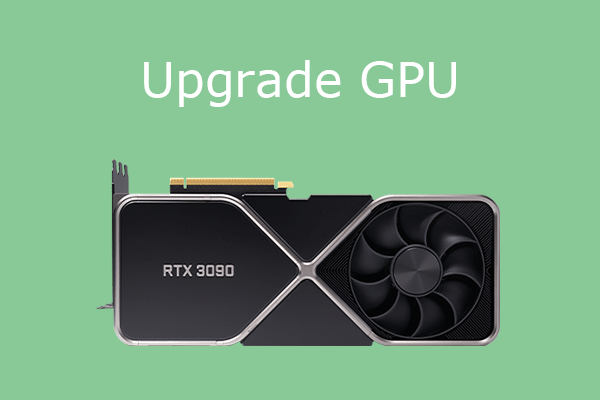Introduction to GPU
GPU, short for graphics processing unit, is a specialized electronic circuit initially designed to accelerate computer graphics and image processing. Nowadays, every computer will have a GPU.
In personal computers, there are two main forms of GPUs: dedicated/discrete GPU and integrated GPU.
Integrated GPU
Integrated GPUs are usually integrated onto the motherboard as part of the (northbridge) chipset, or on the same die (integrated circuit) with the CPU (like AMD APU or Intel HD Graphics).
In addition, integrated GPUs may compete with the CPU for relatively slow system RAM, as it has minimal or no dedicated video memory.
Dedicated GPU
Dedicated GPUs usually have RAM that is dedicated to the card’s use. In addition, they typically interface with the motherboard by means of an expansion slot such as PCI Express (PCIe) or Accelerated Graphics Port (AGP). Therefore, they can usually be replaced or upgraded with relative ease.
Of course, portable computers’ dedicated GPUs may be soldered or interfaced through a non-standard and often proprietary slot due to size and weight constraints.
Integrated GPU vs Dedicated GPU
The advantage of the dedicated GPUs is the high performance. They are usually used for gaming, digital art, video editing, photo editing, 3D modeling, video effects rendering, etc.
The integrated GPUs also have their advantages like less power consumption and low price. In addition, they can run less-intensive programs such as Adobe Flash and do simple work like word processing, video streaming, spreadsheets, and general computing.
Modern integrated graphics processors such as AMD Accelerated Processing Unit and Intel Graphics Technology (HD, UHD, Iris, Iris Pro, Iris Plus, and Xe-LP) can even handle 2D graphics or low-stress 3D graphics.
Can a PC Run Without a GPU?
Can I build a PC without a GPU? Some people may ask this question.
Doing research, I learned that now is a bad time to build a PC because of crazy GPU availability and prices, so I was just going to hold off until supply picks up. Then I was wondering, could I build a PC without the GPU to use as a regular internet surfing machine and just install the GPU later?https://www.reddit.com/r/bapccanada/comments/muzqk8/can_i_build_a_pc_without_a_gpu/
In this question, the GPU usually refers to a dedicated GPU. Then, the answer should be YES.
Nowadays, more and more CPUs come with integrated GPUs. In addition, most laptops don’t have a dedicated GPU. If your CPU has an integrated GPU, you can run your PC without a GPU. But note that not all CPUs have an integrated GPU. You should check that on the product page.
Can a PC run without a GPU? In this question, the GPU usually refers to all GPU forms. Then, the answer should be NO.
Modern operating systems are designed in such a way that the desktop will not be displayed without a video card, even a simple image. Therefore, if you run a PC without a GPU, your PC won’t even turn on and begin the boot process. Your PC just gives you a black screen.
Bottom Line
MiniTool Partition Wizard is a functional tool. It can migrate OS, clone disk, recover partitions, recover data from hard drive, etc. If you have this need, download it to have a try.
MiniTool Partition Wizard DemoClick to Download100%Clean & Safe




User Comments :